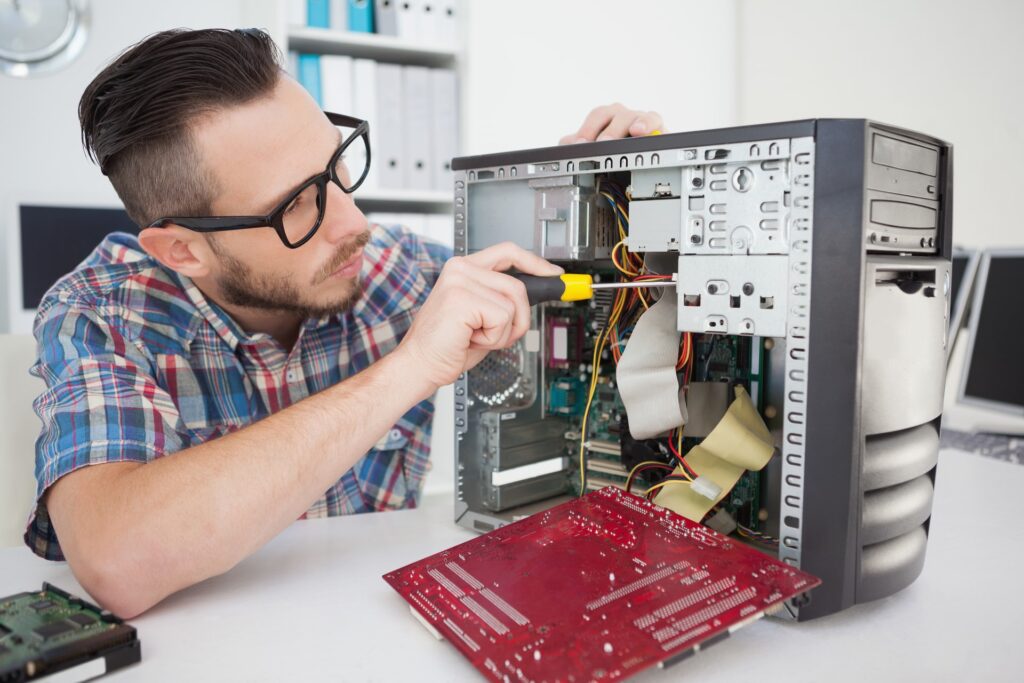Is your computer running slow? Are you tired of waiting for programs to load or pages to open? A slow computer can be frustrating, but there are several things you can do to improve its performance. In this article, we will provide you with expert advice and practical solutions to speed up your slow computer.
Identify the Problem
The first step in speeding up your slow computer is to identify the problem. Here are some common issues that can cause a slow computer:
- Lack of memory or storage space
- Too many programs or files
- Viruses or malware
- Outdated hardware
Once you know the problem, you can take the necessary steps to fix it.
Remove Unnecessary Programs and Files
One of the most common reasons for a slow computer is having too many programs and files. Here are some solutions to remove unnecessary programs and files:
- Uninstall programs that you no longer need or use. Go to the Control Panel and select “Programs and Features” to see a list of installed programs. Select the program you want to uninstall and click “Uninstall”.
- Delete files that you no longer need or use. Go to the File Explorer and select the files you want to delete. Right-click and select “Delete”.
By removing unnecessary programs and files, you can free up space on your hard drive and improve your computer’s performance.
Clear Your Cache and Cookies
Clearing your cache and cookies can also help speed up your computer. Here’s how to clear your cache and cookies:
- Open your web browser and go to the settings menu.
- Select “History” and then “Clear browsing data”.
- Check the boxes for “Cached images and files” and “Cookies and other site data”.
- Click “Clear data”.
Clearing your cache and cookies regularly can help improve your computer’s speed.
Defragment Your Hard Drive
Defragmenting your hard drive can also help speed up your computer. Here’s how to defragment your hard drive:
- Go to the Start menu and search for “Defragment and Optimize Drives”.
- Select the drive you want to defragment and click “Optimize”.
- Wait for the process to complete.
Defragmenting your hard drive rearranges the data on your hard drive so that it can be accessed more quickly. This can help improve your computer’s performance.
Upgrade Your Hardware
If your computer is still running slow after trying the above solutions, it may be time to upgrade your hardware. Here are some hardware upgrades that can significantly improve your computer’s performance:
- Add more memory (RAM). This allows your computer to run more programs at once and can improve overall performance.
- Upgrade your hard drive to a solid-state drive (SSD). SSDs are faster and more reliable than traditional hard drives.
- Upgrade your processor. A faster processor can handle more tasks at once and can improve overall performance.
Upgrading your hardware can be a more expensive solution, but it can significantly improve your computer’s performance.
Use a System Optimization Tool
Using a system optimization tool can also help speed up your computer. These tools can clean up your computer’s registry, remove unnecessary files, and optimize your system settings. Here are some popular system optimization tools:
- CCleaner
- Advanced SystemCare
- AVG PC TuneUp
Using a system optimization tool can be an easy and effective way to improve your computer’s performance.
Conclusion:
In conclusion, a slow computer can be a frustrating experience, but there are several solutions available to improve its performance. By following the expert advice and practical solutions provided in this article, you can identify the problem and take the necessary steps to fix it. Whether it’s removing unnecessary programs and files, clearing your cache and cookies, defragmenting your hard drive, upgrading your hardware, or using a system optimization tool, there are several ways to speed up your slow computer and improve its overall performance.
FAQs:
Q: How do I know if my computer needs more memory (RAM)?
A: If your computer is running slow and you frequently see the “low memory” warning, it may be time to upgrade your memory (RAM). You can check your computer’s memory usage by opening the Task Manager and looking at the “Memory” tab.
Q: Can viruses and malware cause a slow computer?
A: Yes, viruses and malware can cause a slow computer. They can use up your computer’s resources and slow down its performance. It’s important to have a good antivirus program installed and to regularly scan your computer for viruses and malware.
Q: How often should I defragment my hard drive?
A: It’s recommended to defragment your hard drive at least once a month. However, if you have a solid-state drive (SSD), you don’t need to defragment it as it can actually harm the drive.
Q: What is a system optimization tool?
A: A system optimization tool is a software program that can help improve your computer’s performance by cleaning up your computer’s registry, removing unnecessary files, and optimizing your system settings.
Q: How do I know if I need to upgrade my hardware?
A: If you’ve tried all the other solutions and your computer is still running slow, it may be time to upgrade your hardware. You can check your computer’s specifications and compare them to the recommended specifications for the programs you use to see if an upgrade is necessary.
